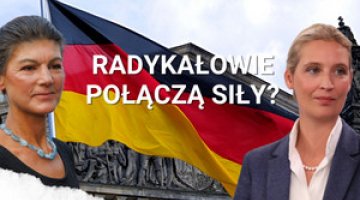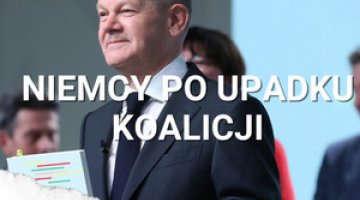The Franco-German vision of the EU’s reforms as presented in Meseberg
The German chancellor, Angela Merkel, and the French president, Emmanuel Macron, signed a declaration on 19 June in Meseberg. One of its most important points is the announcement concerning the creation of the eurozone’s budget. The document also includes such proposals as intensifying coordination of the EU’s foreign policy and common asylum system. Paris’s support for reforms of migration policy was also of key significance at the time of the governmental crisis in Germany, what inclined Merkel to make concessions to France in the policy concerning reforming the eurozone. If the proposals made in Meseberg are implemented, they may significantly change the functioning of the EU, deepening the process of federalisation or providing a new stimulus for transformation in this direction. The main problem will be finding support for the implementation of the reforms both inside Germany and in other member states as well as in the EU institutions. However, it seems that even if not all of the changes are implemented at once, Germany and France will attempt to push through these changes in the coming years.
The eurozone’s budget from 2021
The leaders of the two countries suggested creating the eurozone’s budget until 2021 whilst keeping in mind the convergence, stabilisation and improving competitiveness of its member states. It may be concluded on the basis of information provided in the declaration and in Chancellor Merkel’s statements that preceded it that there will be two pillars in the eurozone’s institutional architecture. The function of stabilising the finances of those member states which have budgetary problems will be performed by loans from the European Stabilisation Mechanism. In turn, investments in the eurozone’s member states will be financed using funds allocated from the planned eurozone’s budget. As with the EU’s Multiannual Financial Framework (MFF), eurozone’s budget will be a multiannual investment budget managed by the European Commission and deriving revenues from similar sources as the MFF. It is worth emphasising that the eurozone’s budget is expected to be launched in 2021, i.e. in the same year as the MFF for 2021–2027. Germany will insist on separating a section of funds from the EU’s Multiannual Financial Framework that will only be available to the eurozone’s member states; this was proposed by the European Commission in the investment budget for the currency union’s member states as a part of the Multiannual Financial Framework for 2021–2027. It will be possible to support those member states of the currency union that have been affected most severely by the crisis, for example, by creating a support fund for the unemployed, which Germany’s SPD has already been insisting on for some time. If this scenario is implemented, new funds will be a real help, especially for the peripheral member states of the currency union. However, these will most likely be insufficient to perform the redistributive function and to withhold the divergence processes in the EU causing an increasingly stronger split between the central and the peripheral member states. Economists have for years been criticising the eurozone for the fact that its construction does not include support mechanisms for the weaker regions, such as those functioning in the central budgets of such countries as the USA. However, it cannot be ruled out that France will manage to push through its proposal of replenishing the eurozone’s budget with funds shifted from the Multiannual Financial Framework and also from completely new sources originating from some form of tax introduced in the member states of the currency union.
The announcement on creating the eurozone’s budget, even though the declaration’s wording is quite general, can be recognised as a breakthrough. Germany has been blocking the creation of this type of instrument for years; now it has been forced to make concessions in exchange for France’s support in adopting the common migration policy. The introduction of the eurozone’s budget will meet with resistance in the EU and Germany. Representatives of the CSU, and the economic council of the CDU, the German Chamber of Industry and Commerce and some research institutes (e.g. Ifo) have criticised this proposal, fearing the introduction of financial transfers between the member states of the currency union. Over the past few years, many Christian Democrat MPs have voted against offering financial assistance to the eurozone’s member states. It can be expected that the AfD and a section of the Christian Democrats will oppose the introduction of the budget, although the Green Party is likely to back the proposal. Until the precise shape of the budget is determined, its creation is not a foregone conclusion, especially given the fact that the next parliamentary election to the Bundestag is scheduled for 2021. Berlin may make attempts to block this project on lower executive levels, as has been the case with the banking union project. Even though member states of the eurozone established a precise schedule for introducing subsequent stages of the banking union (including the introduction of common deposit guarantee funds) gradually from 2016, Germany’s resistance led to implementation of this project being withheld. Such countries as Austria, the Netherlands and Finland are likely to resist the proposal of creating the eurozone’s budget.
Towards a closer coordination of the EU’s foreign policy
In the Meseberg declaration, Germany and France expressed their support for improving the effectiveness and coordination of the EU’s Common Foreign and Security Policy (CFSP). Germany wants a debate on creating more possibilities for majority voting on CFSP issues and to establish an EU’s Security Council (EU SC) that will coordinate the EU’s foreign policy. The details of both of these proposals are unknown. So far, the suggestion of establishing an EU SC was made in 2016 by the then Germany’s Minister of Foreign Affairs, Frank-Walter Steinmeier, and his French counterpart, Jean-Marc Ayrault. It was repeated during the United Europe conference on 13 June in Berlin by the incumbent German Minister of Foreign Affairs, Heiko Maas. Pursuant to this proposal, the European Council would hold a session once a year as the EU SC, focusing on security issues. The meetings would be prepared as part of prior arrangements between the ministers in charge of foreign affairs, defence and internal affairs. The proposal made by Merkel in Meseberg goes even further and points to the possibility of rotational participation in this body and its permanent character. However, it is unclear what the rules would be of countries’ participation in the meetings and whether selected states would be vested with the veto right.
The announcement of changes in the CFSP can be treated as a French concession to Germany. Both Chancellor Merkel and Mr Maas had earlier insisted on improving the effectiveness of the CFSP by selecting areas in which decisions would be taken by a majority of votes; this had previously been opposed by France. For Berlin, a coherent foreign policy of the EU is becoming increasingly important, and the consolidation of the EU member states will help resist the international tendencies unfavourable to Germany, including President Donald Trump’s policy, China's economic expansion, the consequences of Brexit and illegal migration. Furthermore, Berlin fears intensifying pressure from third countries (for example, China, Russia and Turkey) on EU member states to veto common arrangements. Majority voting would prevent this.
The declaration supports Merkel’s standpoint on migration policy. It warns against unilateral and uncoordinated moves that will divide the European Union and pose a threat to the functioning of the Schengen Area. It points to two concrete pillars of the future EU asylum policy: agreements with non-EU countries (e.g. in Africa) to keep migrants in these countries, similar to the EU-Turkey agreement, and increasing the number of officers of the Frontex agency and expanding its mandate.
Paris and Berlin have also agreed to link the French idea of a European Intervention Initiative (EII) with the EU’s Permanent Structured Cooperation (PESCO) and to develop an integrated military and civilian concept for the EU’s crisis response. Germany will make efforts to ensure that the French idea of the EII is linked with PESCO.
Rhetorical unity in climate policy
The Meseberg declaration also includes a statement concerning the two countries’ obligations to implement the long-term goals of the Paris Climate Agreement. This agreement is of particular significance for France and Germany, since both of these countries were strongly engaged in the final round of the negotiations of the global climate agreement in December 2015. Pursuant to this agreement, 194 signatory states undertook to keep the average global temperature growth at a level significantly below 2 degrees Celsius above the pre-industrial level. So far, the agreement has been ratified by 177 states accounting for around 87% of global greenhouse gas emissions. The Meseberg declaration contains provisions on the EU’s implementation of its obligations under the climate agreement, such as developing a European strategy for reducing emissions by 2050, a revision of the voluntary undertakings to reduce emissions (NDCs) by 2020 and making new undertakings as regards the climate policy during the COP 24 conference in Katowice. The declarations also envisage the establishment of a German-French working group for climate change on the ministerial level which would deal with such issues as coordination of the energy transformation and additional taxation of CO2 emissions. Paris wants to set a minimum price for the allowances (at present, they cost around 15 euros per tonne).
Proposals linked to the climate policy need to be viewed as a declaration of the continuation of the German-French co-operation in this area and not an announcement of concrete moves. Both countries increasingly differ on climate policy. France has been effectively reducing emissions over the past few years, while Germany has had problems meeting its obligations as regards emission reduction. According to the latest estimates from the German non-governmental organisation Öko-Institut, unless greenhouse gas emissions are reduced, Germany will have to pay around 30 billion euros for additional emission allowances in 2021–2030.
Meseberg marks the beginning of a reform process
The Meseberg declaration, following earlier statements from Chancellor Merkel, outlines the direction for further change in the EU. It is a manifestation of the stance shared by a large section of the German political scene, including the CDU, the Green Party and the SPD (partly owing to taking into account the Social Democrats’ demands concerning the European funds for supporting the unemployed or the possibilities of expanding majority voting in the CFSP). For this reason these arrangements may become the base for the German negotiation strategy in the EU also after the next election and change in government in Germany. Thus the proposals mark the beginning of a process that will be continued in the next years.
Germany’s concessions with regard to France prove that Chancellor Merkel’s position is weakening not only inside the country but also on the European forum. Merkel had to agree to the creation of a eurozone budget – something she had opposed for many years – and to accept a compromise with Emmanuel Macron to gain France’s support for reforming the asylum system. The costs of Berlin’s concessions to Paris may be paid by Central Europe, if the funds allocated to cohesion policy in the new Multiannual Financial Framework are shifted for the benefit of the southern member states of the eurozone. As a consequence of the changes in the CFSP fewer decisions may be made through compromise, while more decisions concerning the directions of the EU’s foreign policy may be made in smaller groups of countries, where France and Germany will play the dominant role.
Kamil Frymark and Konrad Popławski, additional research by Rafał Bajczuk





